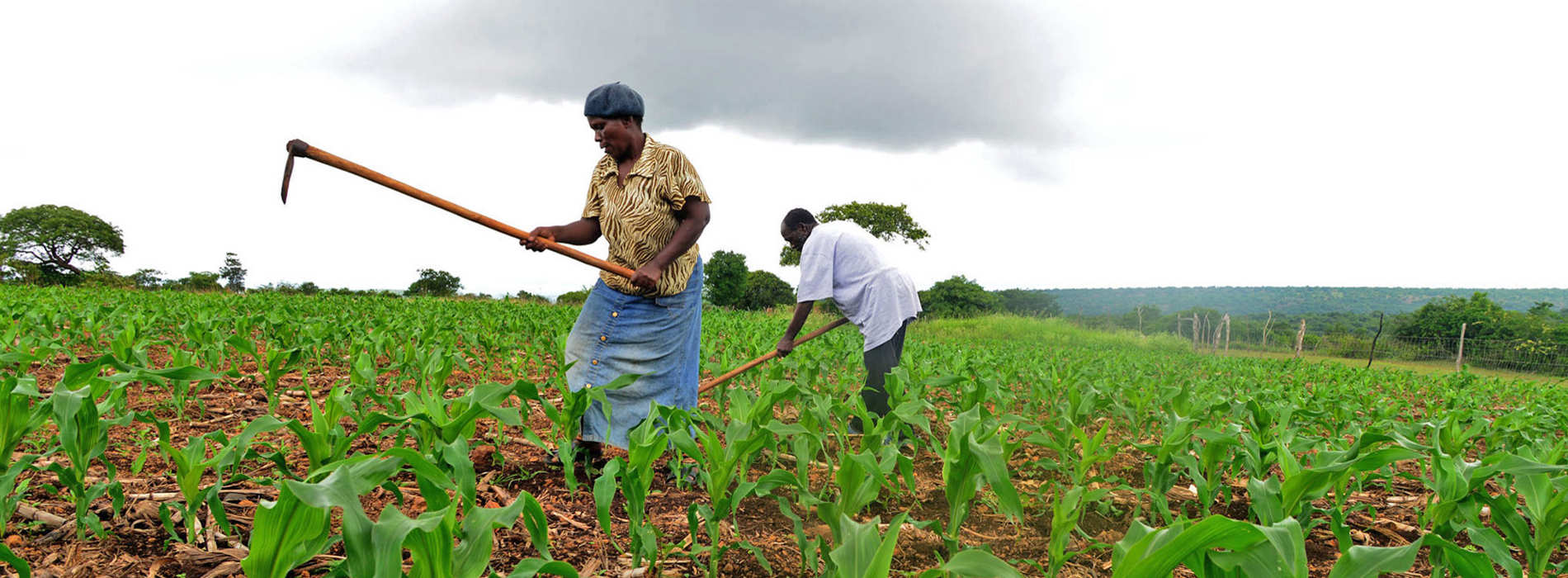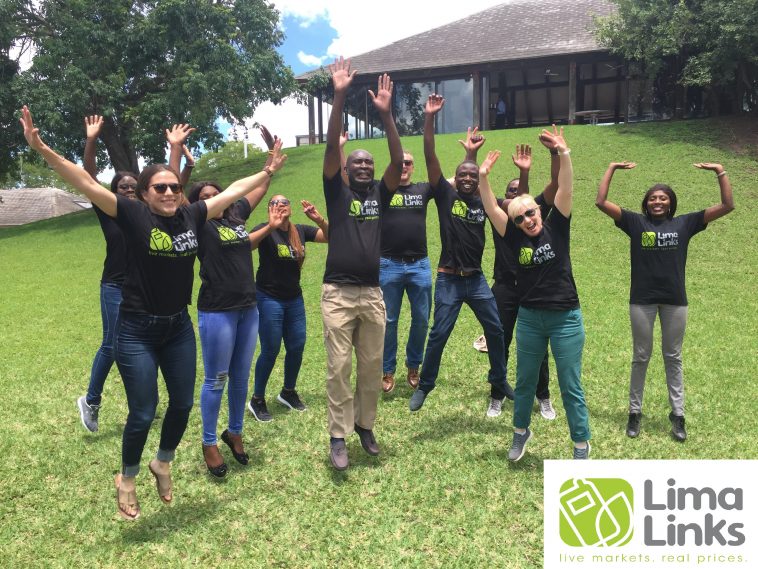TechInAfrica – Meet Melanie Wilkinson, the Lima Links founder – Lima Links is a young Zambian company which connects smallholder farmers to the wider agricultural marketplace via technology platforms.

Firstly, can you pitch us your company in just a few sentences?
Lima Links is a Zambian Agri-tech company that launched the first-ever agriculture technology platform for smallholder farmers in April 2017. Zambia has over 1.3 million smallholder farmers
who struggle to find affordable Agri-products and services and access to markets to sell their crops. Lima Links has built an ICT platform specifically for the smallholder farmer and accessible on the most basic phone on USSD. On this platform, farmers can access live buying prices across the full range of Agri sectors, including fresh vegetables, field crops, and livestock from different market actors. They can also view agricultural products, agricultural equipment and service providers, as well as access messages on important disease alerts as well as events and opportunities relevant to them. Farmers anywhere in the country can access the platform by dialing *789# on any basic phone and a registered SIM card with our network partner, Airtel.
Can you tell us more about yourself, your personal background, your experience and how you went to this journey?
I have worked in development for over 20 years, providing leadership and management of complex market system development initiatives and shaping delivery of development programs across Africa, Europe and Central Asia. For ten of those years I worked as a Consultant, supporting technical design, implementation and evaluation of programs for a lot of different donors and international organizations. I got to see and understand all different ways and means of tackling deep-rooted poverty issues. I have lived and worked in Zambia for 12 years now. During these years, I have contributed to rural and agriculture finance policy, and helped build solutions to address seemingly inextricable linkages between finance, production and market access.
Lima Links was born out of a pilot project by iDE, a global NGO with unfailing commitment to design solutions based firmly on the needs of farmers, rural households and the business partners it works with and in the context in which they are operating. I helped found and start Lima Links when I was with iDE. It was after leaving iDE that I decided to lead Lima Links. Lima Links perfectly combines my passion for good business sense with an all-out impactful mission.
Can you tell us more about Zambia? Why this market?
The Zambian agricultural sector is one of the engines that drive economic growth and poverty eradication. With over 1.3million smallholder farmers producing across the country, Lima Links believes there is still huge unmet potential for economic growth through Agriculture.
However, we knew that there existed a gap between the smallholder farmers harvesting their crop and knowing where to sell. High perishability levels of agricultural products and lack of access to market information did not allow the farmer to make timely and informed decisions and subsequently have selling power of their harvest.
With the coming of Lima Links, farmers now have access to various live market prices for various produce, which now help them know where to sell, and translate all their efforts into profits. This will construe into significant improvements in the country’s Gross Domestic Product (GDP), contribute to employment generation, and reduce the levels of poverty in the country.

What are the main issues you have been facing in Zambia?
I believe that the small-scale farmer has for far too long been on the periphery of agricultural growth; to be central to agricultural growth and not on the periphery, we need to ‘do business differently’.
This is the purpose of Lima Links; farmers with access to real time market price information can quickly learn to do business differently, suppliers and buyers are able to access farmers with products and services in new, innovative and more cost effective ways, market agents, who are often times regarded as the gate-keepers or the villains of market access, can instead be agents of change and be core to putting price information out in the market place. This will allow them to have ample opportunity to do business differently.
Is Lima Links a risk? Yes, it is, but it is a calculated risk. To get to this point today, there has extensive consultation with farmers, traders in the open market place, various suppliers, and buyers, and we will continue to do so to ensure a thriving smallholder sector, at the centre of Zambia’s agricultural growth.
Who are your main competitors around ? And outside of the country, who are you inspiration ?
Currently, there are no comparable services in Zambia that allow farmers to have instant access to accurate, updated market information on their phones. Most of the agriculture technology services built in Zambia are Android applications which target higher level actors in the value chain, such as lead farmers or cooperative leaders. For this reason, Lima Links created a free service built for the individual farmer on a rural farm, typically with very limited access to products and services, and the results from inception have been outstanding.
We gather a lot of inspiration from successful Agri tech enterprises across Africa that we monitor and connect with to guide our learning and success. From day one, we reached out to seasoned CEOs, industry leaders, and leaders of startup in and outside of the ag tech space to gather their experiences.
What is your point of view, as a startup founder, about Zambia?
Zambia has many of the important ingredients for successfully launching a startup. It is peaceful and stable, easy registration and formalization processes, a young labor market eager to make their mark, and unexplored market opportunities. The downside? I’ll focus on the cost base. It is big from the start and can quickly stifle growth potential.
Is it hard to find investors there ?
Up until 2-3 years ago, I would have replied yes, it’s hard; but the investment space has grown; impact investment, which is a good fit for us; at least that is our experience. I would add that investors are not yet visible or accessible enough though, and there is a need to bring investors much closer still and educate both enterprises and investors on opportunities and risks.
What do you think is lacking to Zambia to develop it more? What are the main barriers to develop a startup there?
Missing Links in Zambia’s development
Poor infrastructure. Roads, communications, on grid and off grid power, making it hard to reach and maintain contact with target markets. Specific to ag, is the need to develop cold chain and rural road networks (ease in transportation of produce to agric markets);
Create greater synergies between public and private sector initiatives to maximize leverage of resources for economic development.
Greater transparency and opening up of commodity markets to ensure viability at smallholder level and reduce farmer vulnerability to exploitative buyers.
Primary product dependency (copper), more attention should be directed to agriculture.
Few Post harvest technologies for value addition.
Improved credit market systems (for low interest short term loans).
Capital investment loans (long term; for land development, equipment, irrigation etc).
Little education to farmers on labor productivity on a piece of land (maximizing input on land for more quality output> low and ineffective inputs on larger piece of land), as well as division of labor between men and women (does not reflect comparative advantage).
Barriers to start-up development
Access to the right kind of finance – at the seed stage; building people capacity, high costs of
running a business.
What is your perspective for the next years on Zambia and more regionally on Africa?
Its mixed. There is so much potential, and technology solutions are clearly flowing in to all different sectors to address and solve long standing challenges. However, there is too little focus and investment in the next future generation. Health and education for the vast majority is still very poor, and that perpetuates poverty; without meaningful improvements in these areas, poverty will perpetuate. Furthermore, climate change is another real challenge for the region; it is rapidly impacting water resources, soils, land use options and needs smart and coordinated regional efforts to mitigate immediate and long-term climate impacts.
As you know, we are always on the look of great startups, new products and amazing entrepreneurs, could you name a few locally or regionally in Zambia ?
Zoona: One of the first pioneers in Mobile money transfers
Bongo hive: Young, innovative, ambitious
Musanga logistics: Smart new way to solve an old problem
Vitalite: Talked about shared value before anyone else new what it was
For the further information go visit http://www.limalinkszambia.com/; and send an email to [email protected]




